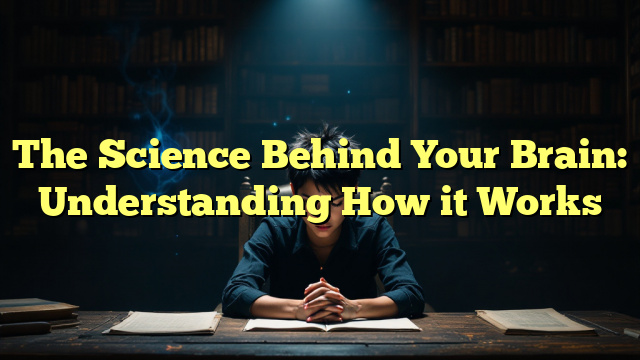Our brain is one of the most complex and fascinating organs in our body. It is responsible for controlling our thoughts, emotions, movements, and even our actions. Understanding how our brain works can help us better understand ourselves and how we interact with the world around us.
Neurons and Neurotransmitters
The basic building blocks of our brain are neurons. Neurons are specialized cells that transmit information through electrical and chemical signals. These signals are carried by chemicals called neurotransmitters. Neurotransmitters are released by neurons and travel across synapses to communicate with other neurons.
Brain Regions and Functions
Our brain is divided into different regions, each responsible for controlling specific functions. For example, the frontal lobe is responsible for decision-making and problem-solving, while the temporal lobe is responsible for memory and language.
Brain Plasticity
One of the most fascinating aspects of our brain is its ability to change and adapt over time. This phenomenon is known as brain plasticity. Our brain can reorganize itself by forming new connections between neurons, strengthening existing connections, and even pruning unnecessary connections.
Conclusion
Understanding the science behind our brain can help us appreciate its complexity and the incredible capabilities it possesses. By learning more about how our brain works, we can make informed decisions to support its health and function.
FAQs
What are some ways to keep my brain healthy?
Some ways to keep your brain healthy include exercising regularly, getting enough sleep, eating a balanced diet, engaging in mental stimulation activities, and managing stress.
Can our brain be trained to improve certain skills?
Yes, our brain can be trained to improve certain skills through practice and repetition. This process, known as neuroplasticity, allows our brain to create new neural pathways and strengthen existing ones.
How does aging affect our brain?
As we age, our brain undergoes changes that can affect cognitive function. However, engaging in activities that promote brain health, such as staying physically and mentally active, can help mitigate some of these effects.
Unlock Your Mental Potential


